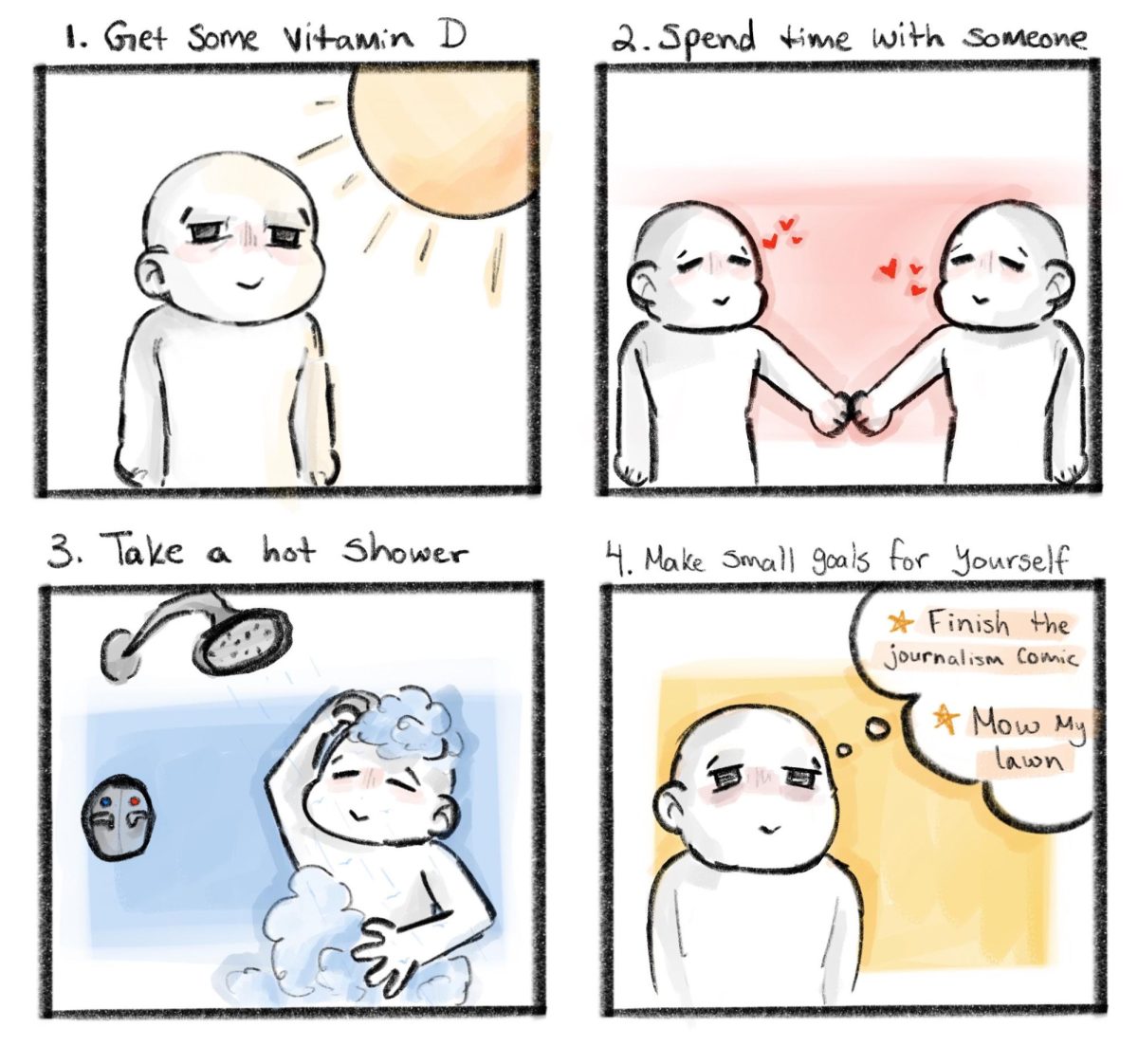As winter approaches and the seasons change, the cold weather feels like it bites. However, those aren’t the only things that are different from summertime; you may realize that your emotions are changing as well. As the skies become grey and nature loses its color, we seem to do the same—just emotionally. According to Columbia University Irving Medical Center, ten million Americans—or, three percent of the United States population—are affected by seasonal depression every year.
“It’s definitely a common thing regardless of age; we know it affects people at all different ranges,” school counselor Shawna Magtutu said, “If we like to be outside and play sports, now you have to do indoor activities. If we’re more nature-prone people, that seems to impact us more.”
To some, seasonal depression may have a lower effect on their mood or motivation. Others, however—especially those suffering with other underlying mental disorders—may experience a more severe case of seasonal depression. People may experience a bad mood or may feel more tired.. Not only does seasonal depression have a mental or emotional effect on a person, but their physical appearance can be affected as well. Someone lacking sleep due to the winter blues may look more exhausted than usual, or even be more emotional in general.
“You see it in the body language. No one will outright say it, but I see an increase in students requesting sessions [to talk],” student social worker Zach Thomas said. “Some kids will dig a little bit of a hole in the January and February months, and they’ll have to get themselves out in March and April.”
Despite the fact that it may seem like a never-ending cycle during winter, seasonal depression usually goes away just before spring. It may be difficult to get yourself up and out of your warm bed and out into the cold, biting weather. Though during the time you may be feeling a little blue, there are things that can be done to make yourself feel at least a little better in the meantime.

